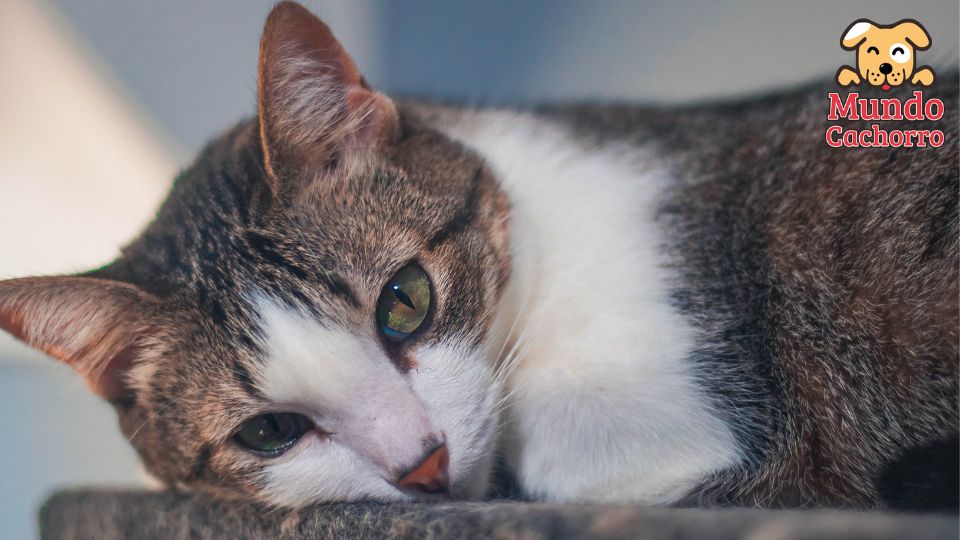The relationship between cats and parasites is a topic of concern for pet owners and veterinarians.
These small felines, known for their independence and hunting skills, face several types of parasites that can affect their health and that of their owners.
This article explores the most common types of parasites that attack cats, the symptoms they present and preventive measures that can be taken to protect these animals and their human families.
Indice
Most common types of parasites
Fleas
Fleas represent one of the most frequent parasites in cats.
These tiny jumping insects feed on the cat’s blood, causing intense itching and, in severe cases, anemia.
Fleas can also transmit other parasites, such as tapeworms, when cats lick and swallow infected fleas.
Ticks
Ticks, although less common than fleas, also infest cats, especially those that have access to the outdoors.
These arachnids attach themselves to the cat’s skin and feed on its blood, and can transmit diseases such as ehrlichiosis and anaplasmosis.
Deworming in cats: When to start
Ear mites
Ear mites are microscopic parasites that lodge in the cat’s ear canal, causing intense itching, inflammation and a dark, waxy discharge.
These mites are easily transmitted between cats and can lead to secondary bacterial infections if not treated in time.
Intestinal worms
Intestinal worms, including roundworms and hookworms, infect many cats, especially kittens.
These parasites lodge in the intestine and feed on the host’s nutrients, causing weight loss, diarrhea and vomiting.
Cats can contract worms by ingesting parasite eggs present in the environment or by consuming infected prey.
Tapeworms
Tapeworms are another type of intestinal parasite that affects cats.
These segmented worms attach to the intestinal wall and can grow several meters long.
Cats usually become infected by ingesting fleas or rodents that harbor tapeworm larvae.
Symptoms of parasitic infestation
Excessive itching and scratching
One of the first signs of a flea or ear mite infestation is excessive scratching.
Cats constantly scratch and lick, which can lead to hair loss and crusting of the skin.
How to care for a puppy
Changes in appetite and weight loss
Intestinal worms and tapeworms affect the absorption of nutrients in the cat’s intestine, which can result in weight loss and changes in appetite.
An infected cat may eat more than usual but still lose weight.
Diarrhea and vomiting
The presence of intestinal worms often causes diarrhea and vomiting in cats.
In some cases, worms can be observed in the cat’s feces or vomit, which is a clear sign of infestation.
Behavioral changes
Cats infested with ticks or ear mites may show behavioral changes such as irritability or lethargy.
The discomfort and pain caused by these parasites affect the overall well-being of the animal.
Preventive measures
Regular deworming treatments
To prevent infestations, veterinarians recommend regular deworming treatments.
These treatments, available in the form of pipettes, collars or tablets, eliminate and repel fleas, ticks and other parasites.
Protecting your pet from parasites and fleas
Environment control
Keeping the home clean and free of parasites is crucial to the health of cats.
Regular vacuuming of carpets, washing cat bedding and treating infested areas with flea products helps reduce the risk of infestations.
Periodic veterinary examinations
Taking cats to the veterinarian for regular examinations ensures early detection of any parasitic problems.
Veterinarians can perform stool analysis and physical examinations to identify the presence of parasites and recommend appropriate treatment.
Hygiene and personal care
Practicing good hygiene measures, such as washing hands after handling cats and avoiding contact with feces, reduces the risk of parasite transmission between cats and humans.
The relationship between cats and parasites is a topic of great importance for animal and human health.
By knowing the types of parasites that affect cats, the symptoms they present and the preventive measures that can be taken, pet owners can better protect their feline companions.
Keeping a close eye on your cat’s health and living environment is essential to preventing infestations and ensuring a long, healthy life for these beloved animals.
Prevention and proper treatment of parasites not only benefits cats, but also protects the health of the entire family.








